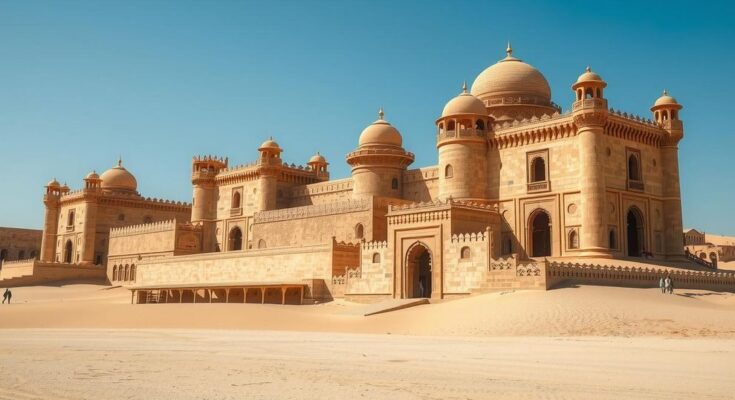The civil war in Sudan, beginning April 2023, features conflict between the Sudanese Armed Forces and the Rapid Support Forces, drawing in foreign powers such as Saudi Arabia and the UAE, who provide support. Key factors include historical ties, regional instability, and investments in Sudan’s economy, which is crucial for food security. The conflict’s resolution remains unlikely due to entrenched positions and ongoing international dynamics.
The civil war in Sudan, which commenced in April 2023, features the Sudanese Armed Forces opposing the paramilitary Rapid Support Forces amidst a struggle for political and economic dominion. This conflict has spurred a devastating humanitarian crisis, drawing in various foreign states including Chad, Egypt, Iran, Libya, Qatar, Russia, Saudi Arabia, and the United Arab Emirates (UAE). Notably, Saudi Arabia and the UAE have purportedly rendered financial and military support to the conflicting factions, despite official denials.
The outbreak of the civil war is primarily attributed to domestic factors in Sudan, although external state involvement plays a pivotal role. Sudan has interacted significantly with Middle Eastern states in the past two decades, with Saudi Arabia and the UAE prominently involved. The historical political relations between Saudi Arabia and Sudan are longstanding, dating back to Sudan’s independence in 1956, facilitated by geographic proximity and shared religious ties.
Conversely, the UAE has enhanced its economic influence in Africa since the early 2000s, particularly increasing its focus on Sudan around the late 2010s amid shifting regional dynamics. Following President Omar al-Bashir’s regime, both Saudi Arabia and the UAE aimed to counter Iranian influence and establish a stronger foothold in Sudanese politics, particularly through military involvement in regional conflicts like the civil war in Yemen.
In the aftermath of al-Bashir’s fall in 2019, Saudi and UAE influence intensified, with each monarchy aligning with different factions within Sudan’s military landscape. Saudi Arabia, alongside Egypt, has fostered ties with army leader Abdel Fattah al-Burhan, while the UAE has supported Mohamed Dagalo, the head of the Rapid Support Forces. The relations between the two Gulf monarchies have evolved, with recent divergences highlighted by differing views on political Islam.
Sudan’s strategic importance to the UAE and Saudi Arabia is underscored by the country’s key geographical position between the Sahel and the Red Sea, both regions plagued by instability and conflict. The Gulf monarchies have undertaken significant investments in Sudan’s agri-food sector, with financial commitments between $1.5 billion to $2 billion, primarily driven by food security concerns.
The ongoing conflict in Sudan is unlikely to reach a resolution through negotiations due to the firm belief held by both conflicting parties that their victory hinges on the complete defeat of the other. Additionally, the prevailing global dynamics continue to provide both factions with external backing, impeding efforts for a peaceful settlement. The political landscape in Sudan now reflects a pronounced division of power, signaling a potential for increased fragmentation.
The civil war in Sudan signifies a complex interplay of domestic and international factors, particularly the roles played by Saudi Arabia and the UAE. Their involvement stems from historical connections and a strategic desire to exert influence amidst regional instability. Despite significant investments and geopolitical interests, the prospects for negotiation and resolution appear bleak, as entrenched positions and external support entrench the conflict further.
Original Source: theconversation.com




